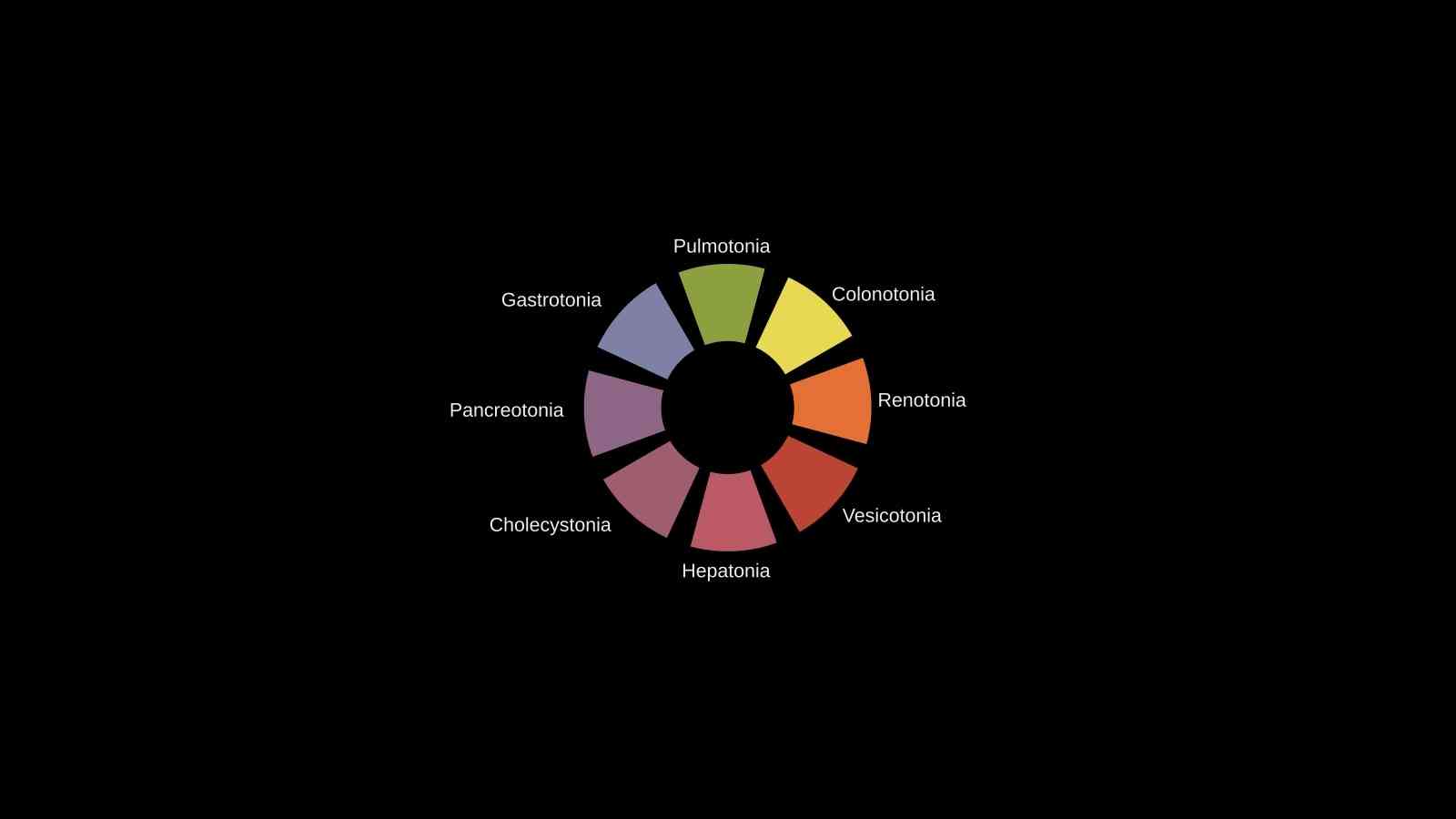
A personalised, holistic, and preventive medical approach: Korean Eight Constitution Medicine
The doctor of the future will give no medication but will interest his patients in the care of the human frame, diet and in the cause and prevention of disease - Thomas Edison
Eight-Constitution Medicine (ECM) is originated and further developed from Traditional Korean Medicine and the effectiveness of ECM has been extensively investigated through peer-reviewed clinical research and empirical evidence based on tens of thousands of patients for more than fifty years.
Why Eight Constitution Medicine (ECM)?
People are different. We all have different abilities and preferences, and the same applies to your health and 'constitution' (or 'body type'). For example, you may know someone who controls weight and thrives on a meat diet, but others who eat meat may suffer from atopic dermatitis, irritable bowel syndrome, and other chronic inflammatory disease. A High-Carb diet may work wonders for some, but leaves others feeling tired, gaining weight, and suffering from metabolic syndrome. Vigorous cardio pump exercise or running is good for some, swimming or yoga is better for others. So knowing your constitution - for example, what food and fitness activities suit you - is the foundation to leading a healthy life.
What is Eight Constitution Medicine (ECM)?
A constitution refers to the nature of an individual's health response based on their psychosocial and physiological traits. ECM recognises constitutional differences and that not all disease is the same, presenting different trigger factors, inflammatory responses, and symptoms.
ECM employs a personalized approach to treatment, even between people with the same 'disease', prescribing individualised neuromodulatory protocols via acupuncture and dietary and lifestyle regimen, aligning with the emerging 'personalised, holistic, and preventive'medicine movement. A personalised regimen of diet and lifestyle allows patients to take control of their own health and prevent illness over the long term.
Constitutional Acupuncture is a powerful method that can result in rapid improvement of complaints such as: neuralgia, asthma, glaucoma, irritable bowel syndrome, hay fever, arthritis, endometriosis, infertility, dermatitis, low immune function, chronic pain, migraines, insomnia, and digestive dysfunction. It can not only relieve major complaints, but it can also tend to resolve other complaints at the same time because of the treatment's holistic nature.
What are the Eight Constitutions?
ECM divides the population into eight groups of constitution based on the strength of organ functions and various physiological functions, including autonomic nervous function, metabolic function, and rhythmic function of heart and lungs. They are:
- Hepatonia
- Pulmotonia
- Pacreotonia
- Renotonia
- Colonotonia
- Cholecystonia
- Gastrotonia
- Vesicotonia
Hepatonia Constitution
Hepatonias have strong liver function but weaker lung function.
They are generally robust and muscular. When healthy, they have a higher than average blood pressure, and tend to sweat, but that is natural for them.
Filling the lungs with oxygen by mountain climbing or cycling is beneficial, as are warm baths or a sauna. On the other hand, speaking at length exhausts the lungs and leads to fatigue.
The liver produces bile that needs to be used to digest dietary fats. Animal protein, such as meat, poultry, eggs and dairy are good sources of the essential amino acids that Hepatonias need. EPA/DHA omega-3 fatty acids, vitamin D, and probiotics are beneficial for them.
If Hepatonias eat too much seafood, a vegetarian diet, or not enough meat, they feel lethargic and the facial complexion may darken and can lead to psychological issues, including depression.
Pulmotonia Constitution
Pulmotonias have strong lung function and a weaker liver function.
They can sing or speak at length, but are generally not muscular. When eating meat and wheat, they may suffer from various allergies, chronic inflammation, or skin problems such as atopy.
For their sensitive skin, taking a cold shower instead of a hot one can help to reduce itching because of the cooling, anti-inflammatory effect of cold water. Hot showers can dry out their skin and make them itchier because they can cause the cells to release histamine.Â
Open water swimming is a great exercise for Pulmotonias who have increased tone in the Sympathetic Nervous System. Repeated exposure to cold water can improve the ability to cope with stress, reducing the effect of stress on the parasympathetic nervous system which connects the brain to vital organs like the heart, gut and lungs.Â
Vegetables, seafood, and a gluten-free diet are beneficial for Pulmotonias. Any medication must be carefully chosen because the detoxifying function of the liver is weak. Pulmotonias may suffer adverse reactions more than others. Alcohol and caffeine should be moderated for the same reason.
Pancreotonia Constitution
Pancreotonias are prone to an overactive pancreatic and gastrointestinal function, but the function of the kidneys and adrenals is weaker.
This leads to higher levels of gastric acid, a sensitive stomach, and a tendency to constipation. Pancreotonias need to take care with what they eat. Spicy food, lamb, chicken, ginger, wasabi, and alcohol can give rise to heartburn, and increase the risk of peptic ulcer, diabetes, weight gain, high blood pressure, anxiety, inability to relax, and sleep disorders.
Weak kidney and adrenal function increase the risk of lower libido, infertility, and prematurely greying hair and aging skin. The good news is that a suitable diet alone has many benefits: healthier skin, easier weight control, better blood pressure, and improved libido. Iced drinks, fresh seafood and vegetables, pork, beef, and vitamin E rich foods or supplement are all beneficial for Pancreotonias.
They tend to have internal heat and so sweating (running/sauna/sunbathing) is good for them because it regulates body temperature, but cold baths and swimming are not beneficial because blood flow to the skin will also decrease, and overall, their body won't release as much heat. Consequently, core temperature stays high and pathogenic internal heat disturbs their physiological function.
Renotonia Constitution
Renotonias have strong kidney function but a weak pancreatic and digestive function.
They are exhausted by overheating through vigorous exercise, sunbathing and hot sauna, whereas swimming is beneficial because it helps to regulate temperature and keep their core warm.
When they sweat a lot during Summer seasons, they feel very tired and weak in their digestive function. Stress or anxiety is detrimental to their already weak digestive function and one of the major causes of their indigestion.
Renotonias generally have poor circulation, which is exacerbated by cold food, iced drinks, beer, barley, cucumbers, and pork. On the other hand, various spices, lamb, chicken, beef, cinnamon, ginger, garlic, spring onions, and spicy food promote metabolic activity and circulation, warming their normally cold hands and feet. Foods or supplements containing Vitamin B and Vitamin C are beneficial for them.
Colonotonia Constitution
Colonotonias have a strong large intestine function, but weaker gall bladder and liver function.
As a result, a gluten-free diet low in fat and dairy is important for their health. Sushi/rice, green leafy vegetables, seafood, iced drinks, chocolate, cucumbers, grapes are all beneficial for them.
They should avoid meat, wheat, coffee, and alcohol. A meat diet can adversely affect the immune function of the intestines, making them susceptible to inflammation, and more serious conditions such as Parkinson's Disease, Dementia, and Muscular Atrophy.
Chronic constipation or diarrhoea such as irritable bowel syndrome is an early warning sign for deterioration of their health. Colonotonias need to be careful when taking medication because the liver is slow to remove toxins from the body.
Cholecystonia Constitution
Cholecystonias have strong gall bladder function but a weak large intestine function.
They tend to be athletic, have a good appetite, and have frequent bowel movements, typically 2-3 times a day. A diet including beef, pork, wholegrains, and root vegetables promotes circulation and stamina. EPA/DHA omega-3 fatty acids, vitamin D, and probiotics are beneficial supplements for Cholecystonias.
They also need vigorous sports activity, or they can suffer from constipation. Sun tanning and hiking in dense forest are good for a natural form of Vitamin D and breathing in the oxygen-rich air for health of circulation.
If they consume a lot of seafood, they will often feel abdominal discomfort and experience chronic diarrhoea.
They need to keep the abdomen warm, so drinking beer or swimming in cold water can result in diarrhoea, high blood pressure, and respiratory problems. Drinking warm unhomogenised milk or warm water is beneficial. Enemas and smoking are harmful for Cholecystonias.
Gastrotonia Constitution
Gastrotonias have an overactive stomach and pancreas, but weaker bladder and kidney function.
Foods further promoting hyperactive digestive function (such as spicy food, hot food, greasy food, lamb, chicken, garlic, ginger, cinnamon, curry, tomato, oranges, apples) not only cause digestive problems, but can also result in anxiety and autonomic function imbalance in the long run.
This constitutional imbalance can manifest as indigestion, constipation, chronic headaches, skin issues, and sometimes whole body pain. They should be particularly careful of side effects from medication (such as antibiotics). Alcohol and swimming in cold water are not beneficial.
Fresh and cool foods and drinks can help to counter-balance their overactive digestive function. A glass of cold or iced water in the morning, and mixed grains (e.g. rice, barley, red bean, foxtail millet) would reduce overactivity in the stomach, while pork, seafood (blowfish, monkfish, prawns, crab, oysters), and vitamin E rich foods or supplement are beneficial for Gastrotonia's weak kidney function.
When Gastrotonia is on the right constitutional diet, they tend to maintain good health on their own so they usually have less need for visits to the doctor compared to other constitutions.
Vesicotonia Constitution
Vesicotonias have strong Bladder/Kidney function but weaker Stomach/Large Intestine function.
Their health is closely related to digestive processes. For example, if they eat a lot of cold foods, their already low stomach function gets further weakened. Indigestion becomes the root cause of chronic illness from gastrointestinal dysfunction to psychological issues.
Their health can be easily compromised in the Summer season because frequent sweating and cold food intake make their digestive function weaker. Small meals, warm foods, and less sweating are helpful guidelines for Vesicotonia to maintain good health, especially in Summer.
Gastroptosis is the signature disorder of Vesicotonia. Profuse sweating and diarrhoea drain their energy and make them feel weak and fatigued. They should eat small meals throughout the day, rest after meals (without falling asleep), avoid cold food and drinks (pork, barley, cold beverages), prevent sweating, and avoid the sauna and hot showers. Foods rich in Vitamin B and C or supplements aid Vesicotonia's metabolic function, provide energy, strengthen immune function, and prevent iron deficiency or anemia.
References
Kang, H. et al. (2021) 'Exploring Heart Rate Variability as a Biomedical Diagnostic Tool for the Disympathetic Dimension of Eight-Constitution Medicine', Evidence-Based Complementary and Alternative Medicine. Edited by C. Worsnop. Hindawi, 2021, p. 6613798. doi: 10.1155/2021/6613798.
Kuon, D. (1965) 'A Study of Constitution Acupuncture', Journal of the International Congress of Acupuncture & Moxibustion, Tokyo Japan Vol. 10, pp.149-167
Kuon, D. (1994) 'Let us learn about the eight constitutions, Light and Salt, Duranno, Korea
Kuon, D. (1999) 'Eight-Constitution Medicine: An overview', IMKS Occasional Papers No.2. Institute for Modern Korean Studies. Yonsei University Press, 12, pp. 601-623.
